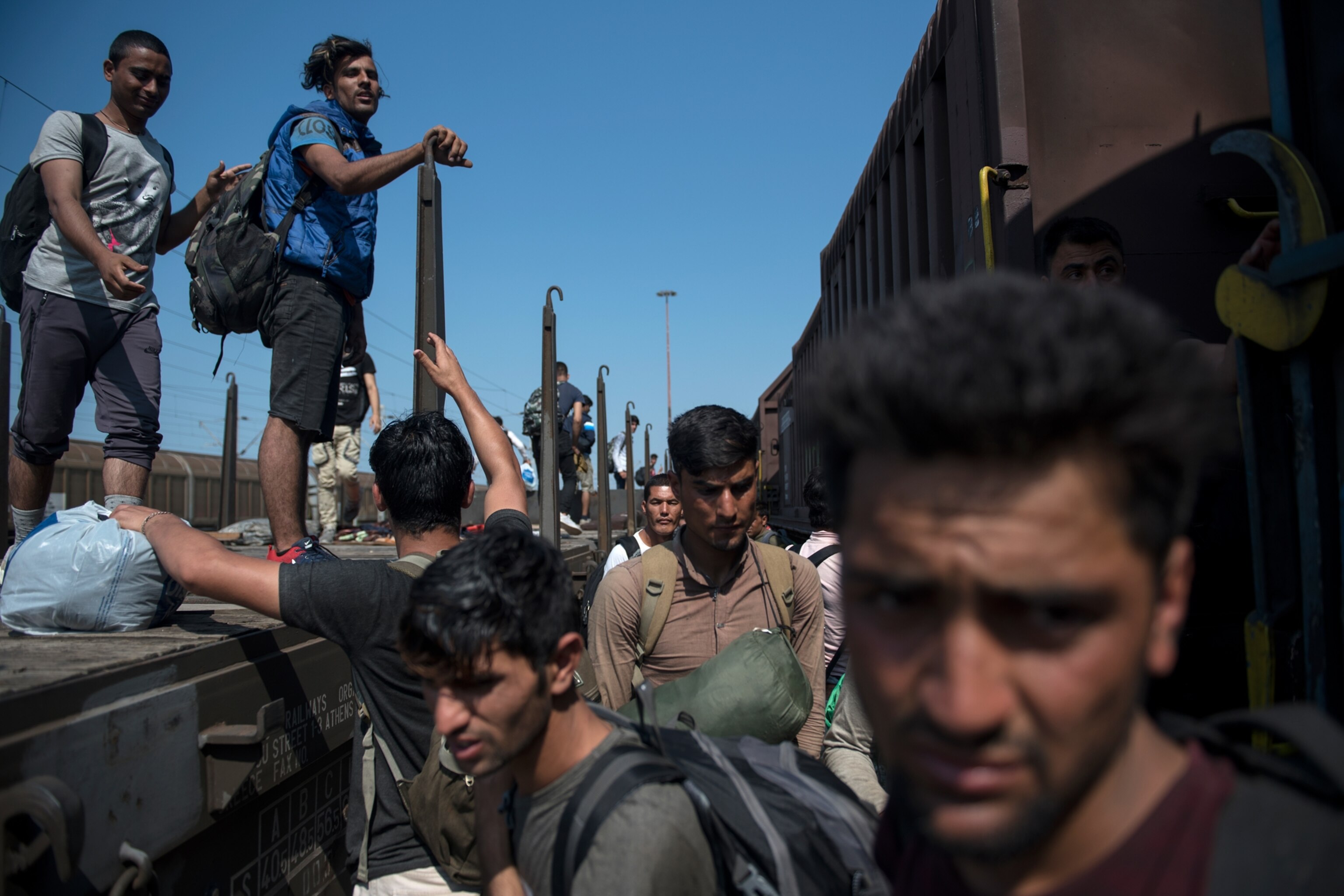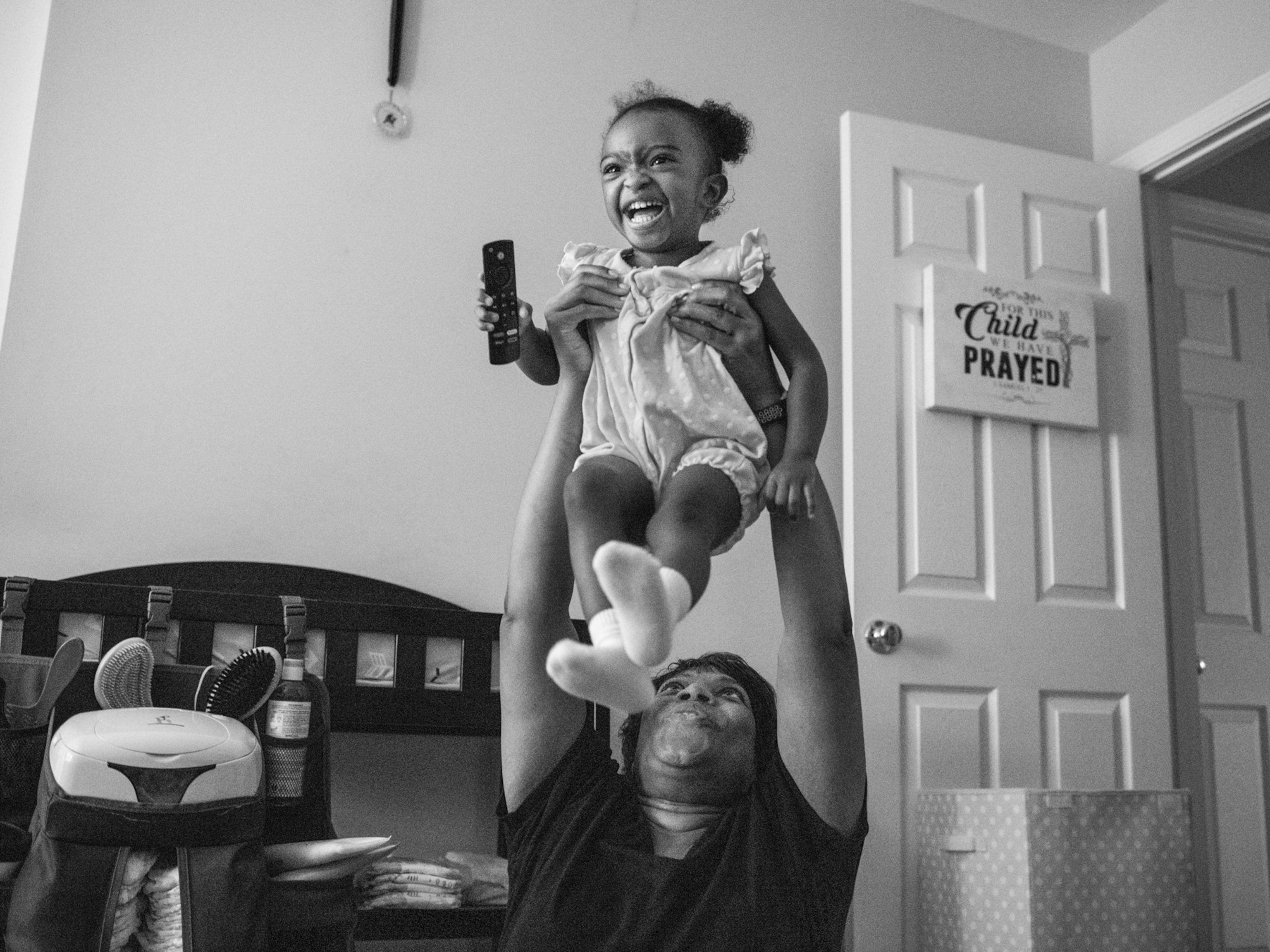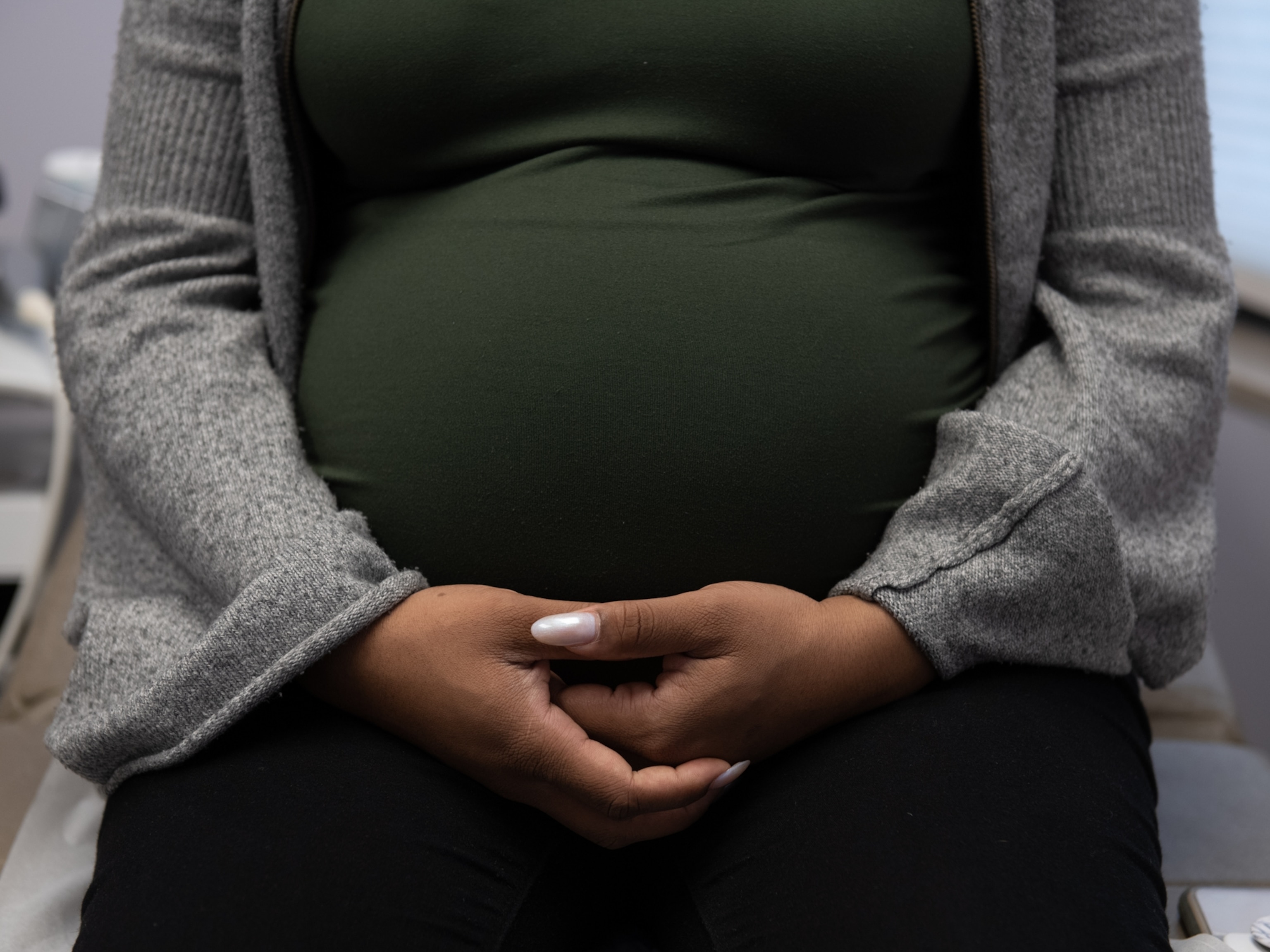
Migrant teens need school. Around the world, they face pressure not to go.
Even before the pandemic, family obligations, organized crime, and a basic need for survival kept them away.
“I want to be something,” says Gulab Rahimi, who left his native Afghanistan when he was 12. “I don’t want to be like other people.” This spring he graduated from high school, a rare milestone for a young refugee.
Rahimi left his parents and seven older siblings to travel alone to Iran and eventually settled in Greece to pursue an education and live under what he calls “clear democracy.” Now 21, he lives in an apartment in Thessaloniki that’s strewn with textbooks in Farsi and Greek; an inspirational quote in English about the power of having a dream beams from a bright red poster on the wall.
For years, Rahimi has been spending 19 hours a day working in restaurant kitchens, attending school, and studying. It was a marathon, and he was nearing the finish line to graduate—online and in the midst of a global pandemic.

“Most of the time I am alone in the class,” he said. Other students weren’t showing up for the online instruction. (Learn why refugee children face psychological trauma.)
There are more than seven million school-age migrants who have been legally recognized as refugees under the United Nations’ refugee agency (UNHCR) mandate, and hundreds of thousands of others whose asylum petitions are still pending or who are undocumented. For all of these migrants, as for Rahimi, the best chance to find a foothold in their new country often lies with the institution their more fortunate peers love to hate: school. (See soccer give refugee children hope in a Jordanian refugee camp.)
Yet most of these adolescents don’t attend secondary school, let alone graduate. The forces pulling them away—poverty, organized crime, family—are too great. And now with the pandemic, children who had managed to enroll find that lifeline yanked away as schools shut down for months. (Discover how the pandemic has affected young migrant families.)
“To me you are Greek”
Migrant teens often miss years of schooling on their journeys. Many are illiterate: They’ve never held a pencil and can’t read in their native language, much less the language of their new country.
They need a basic education to find jobs and thus avoid the criminal networks that prey on vulnerable minors. “If they don’t learn Greek in school,” explains Olga Kalomenidou, a teacher who volunteers at refugee shelters near Thessaloniki, “they will learn it in prison.”

School also acclimates them to their new world. “School is the place to become part of the new culture, which then predicts how well they will do in it,” says Frosso Motti-Stefanidi, an expert on migrant children’s education at the National and Kapodistrian University of Athens.
For many of them, it will be the first time they sit next to peers of another nationality, race, gender, or sexual orientation. It means they have to learn to establish their identity, often a hybrid of old and new.
In a school for newly arrived migrants in Berlin’s multicultural Kreuzberg district, classmates bullied Alia Basal, a 16-year-old Syrian refugee, for not wearing a hijab. “Eventually you choose your way,” she says. “You have to fight to get what you want.”
Mohamad Marof, an 18-year-old from Syria, has found his way in the Greek mountain hamlet of Platanakia, where a teacher from his vocational school has taken him in. He proudly recalls what an older villager told him: “You speak Greek, you go to school... To me you are Greek.”
“The only adults they can rely on.”
Dedicated teachers like Mohamad’s are crucial for migrant teens.
When Sandra Aparicio’s Phoenix, Arizona, middle school switched to distance learning, only five out of her 85 English immersion students were logging into online lessons, which can be a struggle for those learning a new language or with limited access to technology. The teacher spent days tracking down their parents.
She was “busier than a call center,” she says, helping parents set up online passwords or nudging them to borrow a charger if they lost the one that came with the tablets issued by the school.






“If I call them, they work on it,” she says. “I’m not giving up.”
About a month in, her persistence started to pay off: More than half her students did online work, and as many as a dozen students attended her weekly virtual meetings, up from only two in the beginning.
Aparicio was herself a teenager when she reunited with her mother in the United States from their native Mexico. When she spotted one of her students using a classroom wall outlet to charge an ankle bracelet from immigration enforcement, she didn’t mention that she’d also worn such a bracelet. She didn’t want the kids to be afraid that she’d be taken away too.
“We are the only adults they can rely on,” she says. “The teacher is the only adult who listens to them.”
“Overnight your potential is gone.”
Even before the pandemic, migrant teens were under overwhelming pressure to skip school to make money—to pay down smuggling debts, to send remittances to their families, to help younger siblings, to survive. The staggering job losses from the coronavirus shutdowns have only exacerbated the problem.
In Central America, families mortgage their homes and land at usurious rates to pay smuggling fees, which are so steep that only U.S. wages are high enough to cover them, according to University of Arizona researcher Richard Lee Johnson. Smugglers in Guatemala’s northern highlands of Huehuetenango, an epicenter of migration, are now charging the equivalent of $12,000 dollars, teens there say. That leaves most kids who make it to the United States no option but to forego school, heading straight to black-market agriculture or construction jobs.
Olman, a 19-year-old from Honduras with a ninth-grade education, knew that when he finally arrived in the United States, he’d be looking for a job, not attending school. (He requested that only his first name be used.) He has his mother and his three kids to support. Still, when he stopped for a few days at the Casa del Migrante shelter in Saltillo, Mexico, he took the English class offered in the cafeteria. Painstakingly, he learned to say “I am hungry,” and “chicken, turkey, pork” as well as “I’m looking for a job” and “gardener.”
In the Middle East, refugee girls don’t leave home to find work. Instead, they are sometimes forced to ease their families’ financial burden by entering into early marriages that bring in dowries. The United Nations Children’s Fund (UNICEF) reports that in Jordan, where refugees make up 20 percent of the country’s population, the rate of underage female Syrian refugees getting married has dramatically increased as the Syrian civil war continues and refugees grow desperate.

Teen brides almost always drop out of school, says Robert Jenkins, the former UNICEF representative in Jordan. “Overnight your potential is gone.”
Wafa, 19, was forced by her parents to marry at 14. Her older husband abused and divorced her. (She requested that only her first name be used.) She and her two children have returned to her family, sharing an unfurnished apartment in Amman with a dozen relatives. Wafa’s mother says she regrets what happened: “At least before, I had one [to feed],” she says. “Now there are also the two kids.”
In the crowded apartment, Wafa’s little daughter clings to her black dress. When asked if she would consider marrying the girl off at a young age, Wafa immediately answers “No!” in English, adding in Arabic “even if I have to beg for money in the street to feed her.”
A bad bargain
In addition to struggling economically, virtually all teens fleeing their countries have to put their lives in the hands of smugglers, which exposes them to the world of organized crime. From the borders all the way to school doors, teens are pressured to sell illicit substances, perform sex work, and even become smugglers themselves.
One 17-year-old Afghan was offered a deal by a smuggler: He’d get a 1,500-euro discount on his own crossing if he paddled a boat carrying a dozen migrants across the Evros River, which separates Greece and Turkey. It turned out to be a bad bargain: The teenager was arrested on human-trafficking charges and has been jailed in Greece for the past year. (Greek prison authorities requested that his identity not be revealed as a condition of interviewing him.)

On the other hand, for the first time in his life, he was able to attend school—inside the prison. “I want to learn stuff because if I stay here, I need to know Greek,” he said. But Greece’s coronavirus lockdown postponed both his classes and a trial decision.
Across the world, in Houston, Texas, at least three gangs recruit around Las Americas Newcomer School, according to principal Marie Moreno. When schools shut down in March due to the pandemic, dozens of students failed to appear in online classes. Educators at the school, which serves new immigrants with limited English skills, tried to track them down and keep the rest of the students engaged online.
One of the staffers working hard to engage the kids was 19-year-old Anuar Rodriguez Guerra. He started attending Las Americas in 2014, right after he crossed into Texas alone, journeying from Honduras to rejoin his parents. Now that he’s graduated from high school, he works at the school as a clerk. Guerra sees himself as a model for the younger kids: “I want to prove to them that if I made it, they can make it too,” he says. “I would not like to be like other people who are gangsters.”
The right to go to school
That kind of resilient hope for the future animates Haneen, a Syrian refugee who, like Wafa, was married at 14. She had a baby, which her new husband’s family took from her. Eventually she was divorced. (She requested that only her first name be used for personal safety reasons.)
The 18-year-old lives with her parents and five siblings in a basement apartment on a quiet street in Zarqa, Jordan. She says she could barely eat for weeks after her baby was taken away. Then she picked herself up and fought for the right to go back to school. Some principals didn’t want a divorced girl but she found a school that would accept her. She was determined to finish her education so she could pursue what she says is her foremost goal: “Independence.”
That’s now on hold—online homework is hit-or-miss with spotty Wi-Fi—so Haneen spends most of her time helping her mother clean and cook in their kitchen without running water.
When Haneen received her divorce settlement, she bought a professional camera. Someday soon she hopes to take photography classes and then bring her camera out into the desert to shoot the open night sky swirling with stars.
You May Also Like
Go Further
Animals
- This ‘saber-toothed’ salmon wasn’t quite what we thoughtThis ‘saber-toothed’ salmon wasn’t quite what we thought
- Why this rhino-zebra friendship makes perfect senseWhy this rhino-zebra friendship makes perfect sense
- When did bioluminescence evolve? It’s older than we thought.When did bioluminescence evolve? It’s older than we thought.
- Soy, skim … spider. Are any of these technically milk?Soy, skim … spider. Are any of these technically milk?
- This pristine piece of the Amazon shows nature’s resilienceThis pristine piece of the Amazon shows nature’s resilience
Environment
- This pristine piece of the Amazon shows nature’s resilienceThis pristine piece of the Amazon shows nature’s resilience
- Listen to 30 years of climate change transformed into haunting musicListen to 30 years of climate change transformed into haunting music
- This ancient society tried to stop El Niño—with child sacrificeThis ancient society tried to stop El Niño—with child sacrifice
- U.S. plans to clean its drinking water. What does that mean?U.S. plans to clean its drinking water. What does that mean?
History & Culture
- Séances at the White House? Why these first ladies turned to the occultSéances at the White House? Why these first ladies turned to the occult
- Gambling is everywhere now. When is that a problem?Gambling is everywhere now. When is that a problem?
- Beauty is pain—at least it was in 17th-century SpainBeauty is pain—at least it was in 17th-century Spain
- The real spies who inspired ‘The Ministry of Ungentlemanly Warfare’The real spies who inspired ‘The Ministry of Ungentlemanly Warfare’
- Heard of Zoroastrianism? The religion still has fervent followersHeard of Zoroastrianism? The religion still has fervent followers
Science
- Here's how astronomers found one of the rarest phenomenons in spaceHere's how astronomers found one of the rarest phenomenons in space
- Not an extrovert or introvert? There’s a word for that.Not an extrovert or introvert? There’s a word for that.
- NASA has a plan to clean up space junk—but is going green enough?NASA has a plan to clean up space junk—but is going green enough?
- Soy, skim … spider. Are any of these technically milk?Soy, skim … spider. Are any of these technically milk?
- Can aspirin help protect against colorectal cancers?Can aspirin help protect against colorectal cancers?
Travel
- What it's like to hike the Camino del Mayab in MexicoWhat it's like to hike the Camino del Mayab in Mexico
- Follow in the footsteps of Robin Hood in Sherwood ForestFollow in the footsteps of Robin Hood in Sherwood Forest
- This chef is taking Indian cuisine in a bold new directionThis chef is taking Indian cuisine in a bold new direction
- On the path of Latin America's greatest wildlife migrationOn the path of Latin America's greatest wildlife migration
- Everything you need to know about Everglades National ParkEverything you need to know about Everglades National Park







